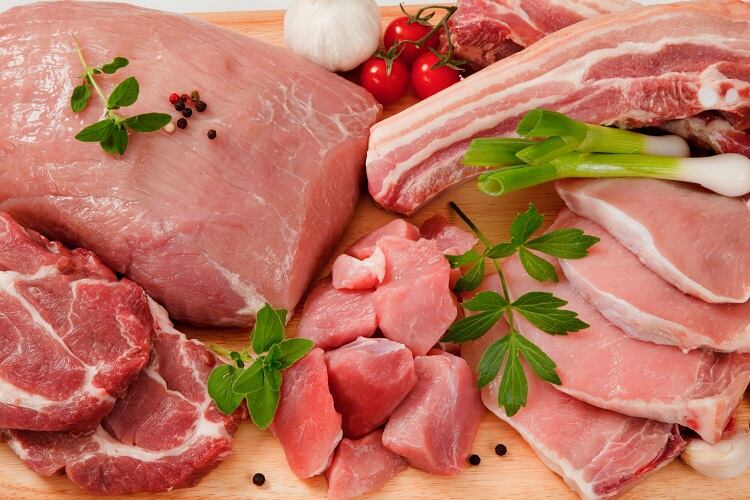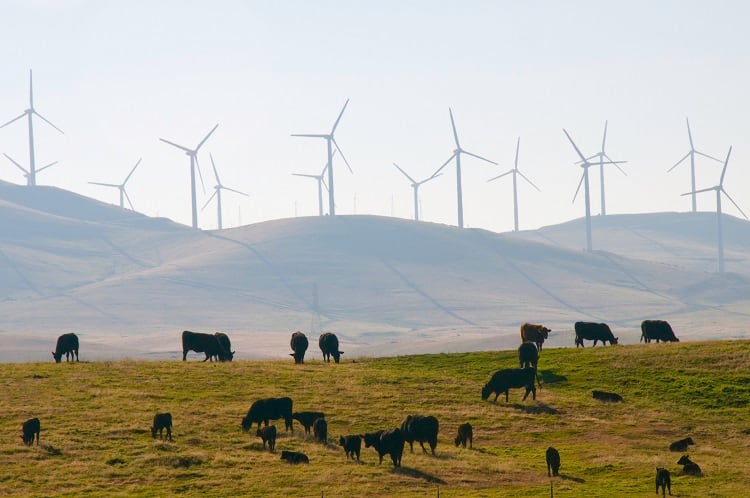Is has long been suggested by plant-based brands, if not directly communicated, that vegan meat alternatives are both healthier and more sustainable than their animal-based counterparts. But is this true?
Researcher Christopher Bryant from the University of Bath has reviewed empirical literature relating to the healthiness and sustainability of such products to find out.
Are plant-based alternatives better for the environment?
To assess plant-based products’ sustainability credentials, Bryant turned to 16 studies examining their environmental impact.
Several studies focused on the greenhouse gas (GHG) impact of swapping out meat products for plant-based alternatives. A 2010 study, for example, found that the pork supply chain contributes 6.4 times more to global warming than plant-based animal product alternatives. Another from the same year concluded that substituting pork for its vegan counterpart reduced global warming potential.
In 2012, one study found that meat substitutes had substantially lower footprints than animal products, calculating that plant-based products were up to 120 times more carbon-efficient than animal products.
And more recent still, a 2021 study found that compared to beef burgers, plant-based burgers were associated with 96-98% less greenhouse gas emissions, and 43-63% less ozone depletion.
Overall, Bryant concluded, the evidence is ‘strongly’ supportive of the view that plant-based animal product alternatives are associated with ‘significantly’ less climate change compared to animal products.
Land, water, and energy use
Concerning land use, the same two 2010 studies found that plant-based alternatives required less. One suggested the pork supply chain demands 2.8 times more land and leads to 61 times more acidification. The other indicated that substituting pork for plant-based alternatives reduced land use and acidification.
In a 2012 study, researchers concluded that plant-based products were up to 420 times more land efficient than animal products.
In water use, too, recent lifecycle analyses suggest that plant-based product alternatives are more water-efficient than animal products. Last year, one study associated plant-based alternatives with 92-95% less marine eutrophication per nutrition density unit compared to beef burgers.
And in terms of energy use, it has been found that swapping out meat for plant-based alternatives uses a similar or lesser amount of energy.
Concerning other environmental factors, such as agricultural inputs, it was deemed that plant-based animal product alternatives can reduce our consumption of fossil fuels, fertilisers and pesticides.

For Bryant, the studies provide ‘overwhelming’ evidence that plant-based animal product alternatives are kinder to the environment in terms of GHG emissions, water use and land use, than animal products.
Which is better for our health?
More than double the number of studies were reviewed to determine the ‘healthiness’ of plant-based animal product alternatives.
Concerning nutritional profile, a 2012 study assessing meat products and their vegan alternatives on-shelf in UK retailers found that the latter were significantly lower in energy density, saturated fat, and protein. They were, however, ‘significantly’ higher in fibre and salt.
Over in the US, research comparing the nutritional profile of beef burgers and plant-based burgers, for example, found that while the two products tended to have similar macronutrient profiles, the plant-based sources of protein, calcium and iron were less bioavailable.
“Overall, the literature supports the view that plant-based animal product alternatives, compared to animal products, have lower levels of fat, saturated fat, cholesterol, and calories, but may have less or less bioavailable, protein, iron and B12,” noted Bryant.
There are ‘several’ areas where future development can help to strengthen overall nutrition in plant-based products, he suggested.

Concerning muscle synthesis, evidence reviewed suggested no difference between the two product categories.
Bryant’s review also judged that plant-based alternatives could be appropriate for, and may benefit, those who are at risk of bone fractures, cardiovascular disease, diabetes, and hyperuricemia.
“Overall, the evidence…suggests that plant-based animal product alternatives can lower cholesterol, improve gut health, and prevent premature deaths,” he added.
Room for improvement
As it stands, Bryant concludes that plant-based animal product alternatives have a ‘wide range’ of health benefits.
However, the researcher is convinced that further developments in processing and formation can help to improve their nutritional profile further – all the while improving taste, texture, cooking properties, price and sustainability.
“Despite the incredible advances that plant-based producers have made over recent years, there is still huge potential to improve their taste, texture and how they cook,” said Bryant.
“There’s also enormous potential to innovate with ingredients and processes to improve their nutritional properties – for example by boosting.”
According to the researcher, more research funding is urgently required to make these improvements a ‘reality’, and thereby ensuring manufactures can make products that taste better, are healthier, and provide consumers with sustainable options that are more likely to reduce demand for meat.
Source: Future Foods
‘Plant-based Animal Product Alternatives Are Healthier and More Environmentally Sustainable than Animal Products’
Published online 27 July 2022
DOI: https://doi.org/10.1016/j.fufo.2022.100174
Author: Christopher J. Bryant




